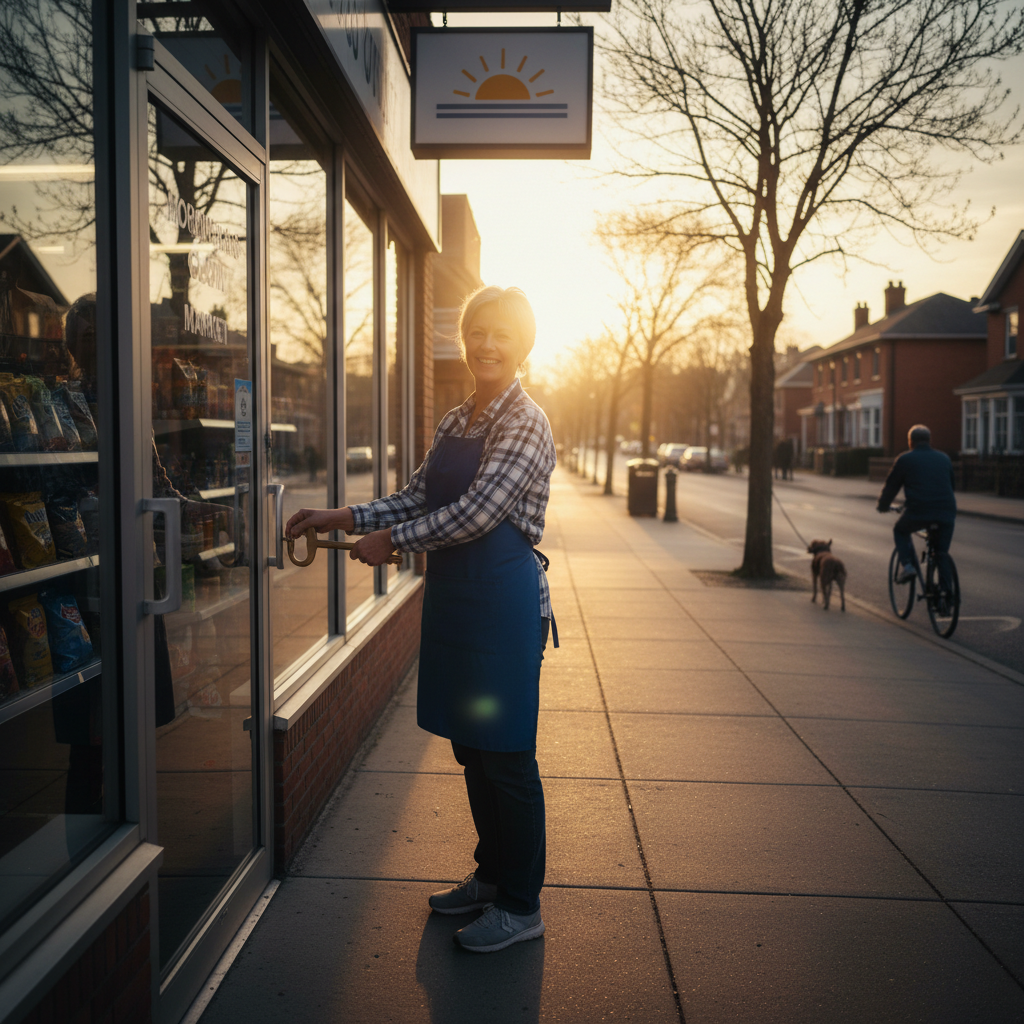
Table of Contents
Introduction
Running a convenience store comes with its own unique set of challenges and risks, which makes having the right insurance coverage absolutely essential. Imagine facing unexpected events like theft, fire damage, or employee injuries without proper protection — the financial and emotional toll can be overwhelming. For every convenience store owner, safeguarding your business and assets is not just prudent; it’s a necessity to ensure ongoing stability and peace of mind.
Convenience stores often operate in fast-paced environments where a variety of liabilities could arise at any time. From customers slipping on wet floors to property damage caused by natural disasters, the threats are real and range widely. According to recent industry reports, small businesses like convenience stores experience a high rate of claims linked to general liability and property damage. This reality highlights the importance of understanding which insurance policies are crucial to your store’s protection.
Many convenience store owners worry about the costs and complexity of insurance, but having the appropriate coverage can save far more than it costs in the face of a claim. Insurance empowers you to manage unforeseen incidents confidently without risking your entire livelihood. By partnering with knowledgeable insurers and choosing policies tailored to your specific needs, you create a safety net that supports business continuity, even in difficult times.
This introduction will address common concerns among convenience store owners, such as selecting the right types of insurance and understanding the risks you face daily. If you’re new to insurance or seeking to refine your current coverage, learning about insurance basics can provide a solid foundation for making informed decisions that protect your store effectively and affordably.
What You’ll Learn in This Guide
In this comprehensive guide, we will explore everything convenience store owners need to know about insurance, from identifying the necessary policies to filing claims smoothly. Here’s what you can expect to learn:
- Understanding Key Insurance Policies: We will explain the most common types of insurance for convenience stores, such as general liability, property, workers’ compensation, and commercial auto insurance, highlighting why each is vital to your business’s protection.
- Assessing Common Risks: You will gain insight into the typical risks convenience stores face every day, including theft, property damage, slip and fall accidents, and product liability, helping you better appreciate why insurance is indispensable.
- Choosing the Right Coverage: Guidance on how to evaluate insurance options based on coverage limits, costs, and insurer reputation will be provided to help you select policies tailored to your store’s unique needs.
- Practical Claim Filing Tips: Learn step-by-step how to file insurance claims efficiently and what to expect during the process, ensuring you can manage claims with confidence and minimize potential disruptions.
As we progress, this article will delve deeper into the types of insurance you should consider for your convenience store and how to weigh various factors like policy customization and premium costs. This detailed look will equip you with the knowledge to protect your assets smartly and economically.
You’ll also find advice on mitigating risks through proactive steps and when to consult insurance experts to navigate complex insurance decisions or claims disputes. Understanding these elements can empower you to avoid costly mistakes and ensure your business remains resilient amidst challenges.
By the end of this guide, you’ll be well-informed about the insurance landscape specific to convenience stores, capable of making educated decisions to safeguard your operation. We invite you to continue reading and discover how robust insurance coverage can be your most valuable asset in protecting your business’s future and peace of mind.

Running a convenience store involves facing a variety of unpredictable challenges that make insurance not just important but essential. Convenience store owners must protect their businesses against a wide range of risks—from property damage and theft to liability claims and employee injuries. Insurance coverage serves as a financial safety net that ensures long-term stability and peace of mind in an industry where daily operations can be impacted by sudden unfortunate events. In this detailed discussion, we will explore the key types of insurance essential for convenience stores, analyze the specific risks owners face, and offer guidance on choosing the most appropriate policies tailored to unique business needs.
Essential Insurance Types for Convenience Stores
Convenience stores, due to their nature, require a combination of insurance policies to cover the diverse risks they encounter. Understanding which insurance policies are crucial helps owners ensure comprehensive protection without unnecessary expense. The foundational coverage typically begins with general liability insurance, which protects against claims related to bodily injury or property damage suffered by customers or third parties while on the premises. Property insurance is also vital, covering damages to the physical store structure, inventory, and equipment resulting from fire, vandalism, or natural disasters.
Moreover, businesses with employees must consider workers’ compensation insurance, which provides wage replacement and medical benefits to employees injured on the job. Business interruption insurance is another important policy that helps cover lost income and operating expenses if the store is forced to close temporarily due to a covered incident. Additionally, commercial auto insurance is necessary if vehicles are used for store operations, offering protection against accidents and liabilities. To fully grasp these insurance essentials, it helps to understand types of insurance detailed in broader insurance guides.
Key Aspects of Insurance Coverage for Convenience Stores
Each insurance policy serves a specific purpose and comes with unique benefits and considerations. Below are the critical insurance types every convenience store owner should evaluate:
- General Liability Insurance: This covers third-party claims of bodily injury, property damage, and advertising injury. For example, if a customer slips and falls inside the store, this insurance helps cover medical expenses and legal fees.
- Property Insurance: Protects the store’s physical structure, fixtures, equipment, and inventory against damages caused by fire, theft, vandalism, or natural disasters. The coverage ensures rapid recovery and replacement of assets, minimizing business interruption.
- Workers’ Compensation Insurance: Mandatory in most states for businesses with employees. It covers medical costs and lost wages when employees suffer work-related injuries or illnesses, ensuring compliance with labor laws and employee protection.
- Business Interruption Insurance: Offers financial protection for lost income and ongoing expenses if the store cannot operate due to a covered peril like fire or flood. It supports business continuity during recovery periods.
- Commercial Auto Insurance: Essential when vehicles are used for deliveries or other operations, it provides liability protection and coverage for physical damage in case of accidents involving company-owned vehicles.
Common Risks Faced by Convenience Store Owners
Convenience stores operate in dynamic environments that expose them to a range of potential threats impacting safety, property, and profitability. Recognizing these risks underscores the need for tailored insurance coverage that aligns with the store’s operational realities. Robbery and theft pose significant concerns due to cash handling and late hours. Property damage caused by fire or natural disasters can halt operations and incur high repair costs. Furthermore, the risk of slip and fall accidents involving customers is a leading cause of liability claims.
Employee injuries are another major risk, given the physical demands and operational hazards present in convenience stores. Additionally, product liability risks emerge from the sale of food, beverages, or other products that could potentially cause harm or dissatisfaction. Understanding these threats helps owners prioritize the most relevant insurance protections. For more in-depth insights, reviewing insurance risks can broaden your perspective on managing these challenges effectively.
Major Risk Considerations for Convenience Stores
Here are the predominant risks affecting convenience stores along with their potential impacts:
- Robbery and Theft: Stores often hold cash and high-demand items making them targets for theft. This risk necessitates insurance that covers losses from burglary and vandalism to safeguard financial health.
- Property Damage from Fire or Natural Disasters: Fires, storms, or floods can cause severe damage to the store building and merchandise. Adequate property insurance enables prompt rebuilding and replacement.
- Slip and Fall Accidents: A common source of liability claims, these accidents may result in costly legal settlements if customers are injured on store premises. General liability insurance usually covers such incidents.
- Employee Injuries: The physical nature of store operations exposes workers to risks like cuts, burns, or repetitive strain injuries. Workers’ compensation insurance is critical to meet legal requirements and support injured employees.
- Product Liability: Liability arising from products sold—especially food and beverage items—can include claims of contamination or allergies. Ensuring your insurance covers product liability helps mitigate these risks.

Conclusion
In summary, securing proper insurance coverage is an indispensable step for any convenience store owner aiming to protect their business against a variety of common risks. From general liability and property insurance to workers’ compensation and commercial auto coverage, the suite of policies tailored to convenience stores helps mitigate financial losses from theft, fire, employee injuries, and slip and fall incidents. Understanding these essential types of insurance ensures that store owners are not caught off guard by unexpected events that could otherwise jeopardize their livelihood.
Equally important is recognizing the prevalent risks faced daily, such as robbery, property damage, and product liability concerns. By appreciating these threats, convenience store owners can better evaluate their insurance needs and work with insurers to customize policies that fit their unique business scenarios. This proactive approach to risk management supports business continuity and helps maintain a stable operational environment despite potential disruptions.
When selecting the right insurance policy, it is vital to consider factors like coverage limits, exclusions, premium costs, and the insurer’s reputation and customer service quality. Policies offering flexibility and clear claims processes reduce stress and allow owners to navigate claims with confidence and efficiency. Awareness of cost factors and available coverage options further empowers store owners to balance protection needs with budget constraints effectively.
For actionable next steps, convenience store owners should start by reviewing their current insurance coverage comprehensively and identifying potential gaps in protection. Consulting detailed resources such as insurance basics and the insurance claims process can provide valuable knowledge to inform decision-making and claims management. Additionally, exploring business interruption insurance through insurance coverage for business interruption is advisable to safeguard against income loss during unforeseen closures.
Finally, it is wise to maintain an ongoing relationship with a trusted insurance expert who can offer personalized advice during major business changes or complex claim situations. This support ensures confidence in navigating the insurance landscape and reinforces the security that proper insurance provides your convenience store.
Ensuring your convenience store has robust insurance coverage is not just about compliance or reacting to risks—it’s about empowering your business to thrive and providing peace of mind for you and your customers. For further learning, consider reviewing related articles such as types of insurance and small business insurance requirements to deepen your understanding of how to protect your business comprehensively.


